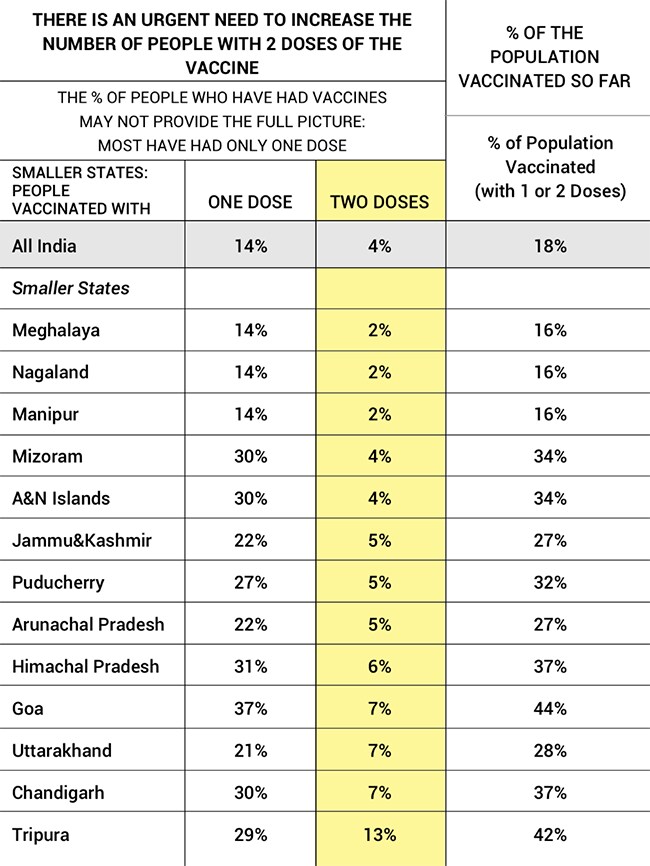
Amid worries of a possible third wave of coronavirus, there are questions about whether the 85-day gap between the first and second vaccine dose could potentially cause problems.
Data shows there is also an urgent need to increase the number of people who have received both doses of the vaccine - two shots are the only effective ammunition against the virus and a possible third.
Here are five points key to fighting the third wave:
1. The efficacy of the vaccine (i.e. how efficient it is against Covid) is much better with two doses than with one dose.
2. Two doses are almost three times more effective than one dose.
3. Published medical research reports suggest that:
- Two doses are almost 90 per cent effective against Covid.
- One dose is only 33 per cent effective.
Q. Is 33% efficacy really enough to prevent a third wave? Most medical experts say it is unlikely, as 33% efficacy is too low. There is also the concern that infected people who have had only one dose maybe infectious and could perhaps infect others - specially others who have not been vaccinated at all (although further medical evidence is needed).
4. The big concern in India now is that only a very small percentage (4%) of the population has had two doses while 14 per cent have received only one dose.
5. The official data (below) highlights this major problem in each state - many states like Uttar Pradesh, Bihar, Jharkhand, Meghalaya, Nagaland and Manipur have vaccinated only 2 per cent of their population with two doses.
There is an urgent need to increase the number of people with two doses of the vaccine - two doses is the only really effective ammunition that can defeat this virus and can prevent a third wave.


Track Latest News Live on NDTV.com and get news updates from India and around the world

